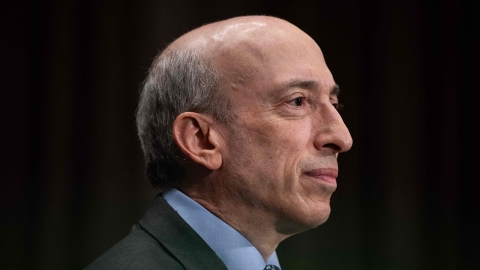How far have we come to 'medical and pension reform' the government's biggest task?
■ Host: Lee Yeo-jin, anchor Jang Won-seok
■ Starring: Minister of Health and Welfare Cho Kyu-hong
* The text below may differ from the actual broadcast content, so please check the broadcast for more accurate information. Please specify [YTN News PLUS] when quoting.
[Anchor]
Half the term of the Yoon Suk Yeol government has passed. Two of the four reforms being pursued as the biggest challenges are healthcare reform and pension reform in the welfare sector. So today, let's invite Health and Welfare Minister Cho Kyu-hong to YTN Studio to talk about how much the reform performance of the current government can be evaluated. Please come in.
[Cho Kyu-hong]
Hello,
[Anchor]
On the 10th, the Yoon Suk Yeol government turned the halfway point of its term. In the meantime, the government has focused on two state-run engines: medical reform and pension reform. How many points out of 100 will you give me?
[Cho Kyu-hong]
I don't think it's appropriate to score at this point because medical reform and pension reform are currently underway. However, both medical and pension reforms are reforms that increase the sustainability of our society and for future generations. In the case of
medical reform, Korea's medical standards are among the best in the world. However, a few years ago, cracks began to occur, including the lack of essential medical doctors, open runs in pediatrics, and attempted emergency rooms. So, in order to solve this problem, we are pushing for a fundamental solution to the medical reform that has been delayed for a long time, such as the increase in medical schools.
Of course, there is still opposition from the medical community regarding the increase in medical schools, but since the people support and support the direction, we will quickly consult and achieve reforms. I think pension reform is meaningful for the government to come up with a single plan for reform for the first time in 21 years. Using this reform plan as the basis for discussion, I look forward to social public debate and active discussions at the National Assembly.
[Anchor]
According to a Gallup Korea poll on the 8th, 30% of respondents said they were doing well in the welfare sector policy evaluation. How do you rate
?
[Cho Kyu-hong]
It's not appropriate for me to re-evaluate the people's evaluation. I think it is the people's words that the government should work harder to say that there are many negative reviews. As the anchor said earlier, the Ministry of Health and Welfare is in charge of medical reform, pension reform, and policies to respond to low birth rates among the 4+1 reforms. None of them are easy tasks. However, we will do our best to complete the reform task by looking only at the people and actively communicating with the people without wavering.
[Anchor]
You suggested the first implementation plan for medical reform earlier, but how is the progress? [Cho Kyu-hong] On August 30, we announced the first implementation plan. To tell you the main task, we are pursuing a structural transformation of a higher hospital. When it comes to a high-level hospital, you can think of a large hospital. Senior hospitals play a key role in Korea's medical system. That's why Korea's medical system can only stand up properly when a high-level hospital stands up properly. We would like to provide support so that these higher hospitals can focus on severe treatment and then focus on training to cultivate competent doctors. Another controversial thing is that the relative compensation for essential medical care is a little weak. So we conducted a full survey of 9,800 health insurance numbers.
So, we plan to completely remove 3,000 of them with low compensation by 2027. So, by the end of this year, we plan to adjust about 900 important fees such as severe surgery and anesthesia. In addition, it also suggested a safety net plan for medical accidents aimed at strengthening the relief of patients' rights.
[Anchor]
You explained the first implementation plan and progress of medical reform, and the second implementation plan will be released within this year. What content is included?
[Cho Kyu-hong]
The second implementation is most importantly to rebuild the region's essential healthcare ecosystem. So, to be specific, we will strengthen the role of local general hospitals and specialized hospitals. Also, if the Korean people are sick the most, isn't the lawmaker the first to go? So, this primary medical innovation plan will be suggested. It is also pushing for reforms in the non-payment sector, which is a major factor in the increase in medical expenses of the people, and the phenomenon of manpower concentration, followed by real-life insurance. And previously, we thought about relieving patients' rights in establishing a safety net for medical accidents, but this time, we will also push for risk mitigation measures so that medical staff can receive medical treatment under more stable conditions. Another important thing is the measures for specialists. We are also preparing to announce a differentiated compensation system and expansion of employment opportunities so that professionals
can engage in medical treatment with pride.
[Anchor]
The doctor hasn't come back yet. And it is unclear whether medical students who took a leave of absence will return next year. And above all, what do you think about the criticism that the fatigue of the remaining medical staff is so great that it is uncertain how long it will last?
[Cho Kyu-hong]
It's very unfortunate that doctors and medical students have not returned. Currently, the medical system is maintained with the dedication and sacrifice of the medical staff in the field, but they are also suffering from a lack of manpower. The government is doing two things. One is to maintain the emergency care system. Most importantly, it is important to ensure that serious emergency patients receive proper treatment on time, so there are 14 emergency regional centers, and 10 more are designated, and if they contribute to emergency treatment, additional incentives are provided.
Another important thing is behind-the-scenes care. In order to strengthen background care, we have also raised the cost of treatment, surgery, and anesthesia, and then we are supporting labor costs when hiring additional doctors and nurses. Another axis is to try to return to your major. We are steadily promoting the improvement of working conditions for majors, such as reducing working hours, and the ruling and opposition council will also discuss and implement measures to support the welfare of majors in depth.
[Anchor]
Right now, the opposition party, the Korean Medical Association, and the so-called Yeouido Council, which lacks medical and medical student groups, are in operation. I heard from the government's position that they would listen to the medical community here. By the way, organizations that participated in the consultative body are also talking about readjusting the number of medical schools, so what do you think about this?
[Cho Kyu-hong]
The ruling and opposition parties have promised to discuss without preconditions or agenda restrictions. To be honest, there is a gap between the medical community and the government, but I will do my best to explain the government's position. However, the medical community agrees that the discussion of university quotas should be based on reasonable and valid grounds. So, we will try to operate the manpower supply and demand estimation committee as soon as possible so that the quota can be discussed on this rational basis.
[Anchor]
Let's talk about pension reform as well. In September, the pension reform plan was proposed, and some say that it would have been better to propose a plan to raise the premium rate and increase the replacement rate as it is a matter that requires agreement from the National Assembly.
[Cho Kyu-hong]
This time, the government suggested that the premium rate was 13% and the income replacement rate was 42%. The premium rate is around 13%, which was agreed upon to some extent by the 21st National Assembly, but I think you are saying that the replacement rate is low. The income replacement rate was reformed in 2007. We have decided to cut it to 40% by 2028. However, if that happens, it could be too low, so we suggested 42%. However, even if it is maintained at 42%, the premium to keep it financially balanced is more than 20%.
So it's a little impossible to raise it from 9% to more than 20%, so we've suggested 42% and 13%. Instead of
, that doesn't mean the government is letting go of income security, but what policy has been proposed is to expand military service and maternity credits. What this means is that there is no income during that period, so the government pays the premiums instead. After this project, we also proposed a project to expand insurance premium support for low-income families, and a step-by-step increase in basic pensions. I look forward to sufficient discussions at the National Assembly.
[Anchor]
Let's also deal with the issue of low birth. I hope you can hear a lot of baby crying. I heard that the trend has improved a little recently, but I'm a little worried. In the future, the Ministry of Health and Welfare will explain what measures to solve this low birth rate problem.
[Cho Kyu-hong]
We believe that the next 10 years and 34 years will be the golden time. So, the government is focusing its policies on parenting, work-family balance, and housing. Our Ministry of Health and Welfare is also promoting the project with a focus on childbirth and parenting. In addition, the government as a whole submitted the establishment of a population strategy planning department to the National Assembly as a population policy control tower, and the presidential office has a low-birthrate senior office to implement all-out policies.
[Anchor]
Lastly, what policies are you implementing for the socially underprivileged?
[Cho Kyu-hong]
The government has come in and is advocating welfare for the weak, and welfare for the weak is a concept in which we find and support those in need who cannot speak out. There are a lot of things. If I introduce you for a moment, we are doing health projects for low-income families, and the median income is the standard for supporting this welfare project. The median income has been raised to the highest level ever for three years, and the introduction of a personal budget system to strengthen options for people with disabilities, followed by 1:1 integrated care for the most severe developmental disabilities. It provides more than a million jobs for the elderly and has also enacted laws to allow them to receive medical care, care, and care services where they live. We are also supporting new blind spots such as family care youth, isolation, and seclusion youth. And since there are many people who have psychological difficulties, we will support psychological counseling to 1 million people by 2027 by conducting a mental investment support project for the whole nation. Even if the government does this, there are many shortcomings. We will cooperate with the private sector and make efforts to find and support them even if they do not receive a report.
[Anchor]
I see. I heard from Minister of Health and Welfare Cho Kyu-hong on issues related to medical reform and pension reform. Thank you for your comment.
[Cho Kyu-hong]
Thank you.
※ 'Your report becomes news'
[Kakao Talk] YTN Search and Add Channel
[Phone] 02-398-8585
[Mail] social@ytn. co. kr
■ Starring: Minister of Health and Welfare Cho Kyu-hong
* The text below may differ from the actual broadcast content, so please check the broadcast for more accurate information. Please specify [YTN News PLUS] when quoting.
[Anchor]
Half the term of the Yoon Suk Yeol government has passed. Two of the four reforms being pursued as the biggest challenges are healthcare reform and pension reform in the welfare sector. So today, let's invite Health and Welfare Minister Cho Kyu-hong to YTN Studio to talk about how much the reform performance of the current government can be evaluated. Please come in.
[Cho Kyu-hong]
Hello,
[Anchor]
On the 10th, the Yoon Suk Yeol government turned the halfway point of its term. In the meantime, the government has focused on two state-run engines: medical reform and pension reform. How many points out of 100 will you give me?
[Cho Kyu-hong]
I don't think it's appropriate to score at this point because medical reform and pension reform are currently underway. However, both medical and pension reforms are reforms that increase the sustainability of our society and for future generations. In the case of
medical reform, Korea's medical standards are among the best in the world. However, a few years ago, cracks began to occur, including the lack of essential medical doctors, open runs in pediatrics, and attempted emergency rooms. So, in order to solve this problem, we are pushing for a fundamental solution to the medical reform that has been delayed for a long time, such as the increase in medical schools.
Of course, there is still opposition from the medical community regarding the increase in medical schools, but since the people support and support the direction, we will quickly consult and achieve reforms. I think pension reform is meaningful for the government to come up with a single plan for reform for the first time in 21 years. Using this reform plan as the basis for discussion, I look forward to social public debate and active discussions at the National Assembly.
[Anchor]
According to a Gallup Korea poll on the 8th, 30% of respondents said they were doing well in the welfare sector policy evaluation. How do you rate
?
[Cho Kyu-hong]
It's not appropriate for me to re-evaluate the people's evaluation. I think it is the people's words that the government should work harder to say that there are many negative reviews. As the anchor said earlier, the Ministry of Health and Welfare is in charge of medical reform, pension reform, and policies to respond to low birth rates among the 4+1 reforms. None of them are easy tasks. However, we will do our best to complete the reform task by looking only at the people and actively communicating with the people without wavering.
[Anchor]
You suggested the first implementation plan for medical reform earlier, but how is the progress? [Cho Kyu-hong] On August 30, we announced the first implementation plan. To tell you the main task, we are pursuing a structural transformation of a higher hospital. When it comes to a high-level hospital, you can think of a large hospital. Senior hospitals play a key role in Korea's medical system. That's why Korea's medical system can only stand up properly when a high-level hospital stands up properly. We would like to provide support so that these higher hospitals can focus on severe treatment and then focus on training to cultivate competent doctors. Another controversial thing is that the relative compensation for essential medical care is a little weak. So we conducted a full survey of 9,800 health insurance numbers.
So, we plan to completely remove 3,000 of them with low compensation by 2027. So, by the end of this year, we plan to adjust about 900 important fees such as severe surgery and anesthesia. In addition, it also suggested a safety net plan for medical accidents aimed at strengthening the relief of patients' rights.
[Anchor]
You explained the first implementation plan and progress of medical reform, and the second implementation plan will be released within this year. What content is included?
[Cho Kyu-hong]
The second implementation is most importantly to rebuild the region's essential healthcare ecosystem. So, to be specific, we will strengthen the role of local general hospitals and specialized hospitals. Also, if the Korean people are sick the most, isn't the lawmaker the first to go? So, this primary medical innovation plan will be suggested. It is also pushing for reforms in the non-payment sector, which is a major factor in the increase in medical expenses of the people, and the phenomenon of manpower concentration, followed by real-life insurance. And previously, we thought about relieving patients' rights in establishing a safety net for medical accidents, but this time, we will also push for risk mitigation measures so that medical staff can receive medical treatment under more stable conditions. Another important thing is the measures for specialists. We are also preparing to announce a differentiated compensation system and expansion of employment opportunities so that professionals
can engage in medical treatment with pride.
[Anchor]
The doctor hasn't come back yet. And it is unclear whether medical students who took a leave of absence will return next year. And above all, what do you think about the criticism that the fatigue of the remaining medical staff is so great that it is uncertain how long it will last?
[Cho Kyu-hong]
It's very unfortunate that doctors and medical students have not returned. Currently, the medical system is maintained with the dedication and sacrifice of the medical staff in the field, but they are also suffering from a lack of manpower. The government is doing two things. One is to maintain the emergency care system. Most importantly, it is important to ensure that serious emergency patients receive proper treatment on time, so there are 14 emergency regional centers, and 10 more are designated, and if they contribute to emergency treatment, additional incentives are provided.
Another important thing is behind-the-scenes care. In order to strengthen background care, we have also raised the cost of treatment, surgery, and anesthesia, and then we are supporting labor costs when hiring additional doctors and nurses. Another axis is to try to return to your major. We are steadily promoting the improvement of working conditions for majors, such as reducing working hours, and the ruling and opposition council will also discuss and implement measures to support the welfare of majors in depth.
[Anchor]
Right now, the opposition party, the Korean Medical Association, and the so-called Yeouido Council, which lacks medical and medical student groups, are in operation. I heard from the government's position that they would listen to the medical community here. By the way, organizations that participated in the consultative body are also talking about readjusting the number of medical schools, so what do you think about this?
[Cho Kyu-hong]
The ruling and opposition parties have promised to discuss without preconditions or agenda restrictions. To be honest, there is a gap between the medical community and the government, but I will do my best to explain the government's position. However, the medical community agrees that the discussion of university quotas should be based on reasonable and valid grounds. So, we will try to operate the manpower supply and demand estimation committee as soon as possible so that the quota can be discussed on this rational basis.
[Anchor]
Let's talk about pension reform as well. In September, the pension reform plan was proposed, and some say that it would have been better to propose a plan to raise the premium rate and increase the replacement rate as it is a matter that requires agreement from the National Assembly.
[Cho Kyu-hong]
This time, the government suggested that the premium rate was 13% and the income replacement rate was 42%. The premium rate is around 13%, which was agreed upon to some extent by the 21st National Assembly, but I think you are saying that the replacement rate is low. The income replacement rate was reformed in 2007. We have decided to cut it to 40% by 2028. However, if that happens, it could be too low, so we suggested 42%. However, even if it is maintained at 42%, the premium to keep it financially balanced is more than 20%.
So it's a little impossible to raise it from 9% to more than 20%, so we've suggested 42% and 13%. Instead of
, that doesn't mean the government is letting go of income security, but what policy has been proposed is to expand military service and maternity credits. What this means is that there is no income during that period, so the government pays the premiums instead. After this project, we also proposed a project to expand insurance premium support for low-income families, and a step-by-step increase in basic pensions. I look forward to sufficient discussions at the National Assembly.
[Anchor]
Let's also deal with the issue of low birth. I hope you can hear a lot of baby crying. I heard that the trend has improved a little recently, but I'm a little worried. In the future, the Ministry of Health and Welfare will explain what measures to solve this low birth rate problem.
[Cho Kyu-hong]
We believe that the next 10 years and 34 years will be the golden time. So, the government is focusing its policies on parenting, work-family balance, and housing. Our Ministry of Health and Welfare is also promoting the project with a focus on childbirth and parenting. In addition, the government as a whole submitted the establishment of a population strategy planning department to the National Assembly as a population policy control tower, and the presidential office has a low-birthrate senior office to implement all-out policies.
[Anchor]
Lastly, what policies are you implementing for the socially underprivileged?
[Cho Kyu-hong]
The government has come in and is advocating welfare for the weak, and welfare for the weak is a concept in which we find and support those in need who cannot speak out. There are a lot of things. If I introduce you for a moment, we are doing health projects for low-income families, and the median income is the standard for supporting this welfare project. The median income has been raised to the highest level ever for three years, and the introduction of a personal budget system to strengthen options for people with disabilities, followed by 1:1 integrated care for the most severe developmental disabilities. It provides more than a million jobs for the elderly and has also enacted laws to allow them to receive medical care, care, and care services where they live. We are also supporting new blind spots such as family care youth, isolation, and seclusion youth. And since there are many people who have psychological difficulties, we will support psychological counseling to 1 million people by 2027 by conducting a mental investment support project for the whole nation. Even if the government does this, there are many shortcomings. We will cooperate with the private sector and make efforts to find and support them even if they do not receive a report.
[Anchor]
I see. I heard from Minister of Health and Welfare Cho Kyu-hong on issues related to medical reform and pension reform. Thank you for your comment.
[Cho Kyu-hong]
Thank you.
※ 'Your report becomes news'
[Kakao Talk] YTN Search and Add Channel
[Phone] 02-398-8585
[Mail] social@ytn. co. kr
[Copyright holder (c) YTN Unauthorized reproduction, redistribution and use of AI data prohibited]
Editor's Recomended News
The Lastest News
-
 U.S. SEC chief who has cracked down on virtual currency "resigns on Jan. 20"
U.S. SEC chief who has cracked down on virtual currency "resigns on Jan. 20" -
재생
![[YTN Live News] Putin "Launches Intermediate-Range Ballistic Missile, Not ICBM"](https://image.ytn.co.kr/general/jpg/2024/1122/202411220650283010_h.jpg) [YTN Live News] Putin "Launches Intermediate-Range Ballistic Missile, Not ICBM"
[YTN Live News] Putin "Launches Intermediate-Range Ballistic Missile, Not ICBM" -
재생
![[YTN Weather on the way to work 11/22] "Fiction" in the middle of the day, cold in the morning...It's clear and the air is clean again.](https://image.ytn.co.kr/general/jpg/2024/1122/202411220645338843_h.jpg) [YTN Weather on the way to work 11/22] "Fiction" in the middle of the day, cold in the morning...It's clear and the air is clean again.
[YTN Weather on the way to work 11/22] "Fiction" in the middle of the day, cold in the morning...It's clear and the air is clean again. -
재생
 Paris buried in heavy snow...Traffic jams throughout France
Paris buried in heavy snow...Traffic jams throughout France




![[Site Y]](https://image.ytn.co.kr/general/jpg/2024/1121/202411211747565909_h.jpg)



